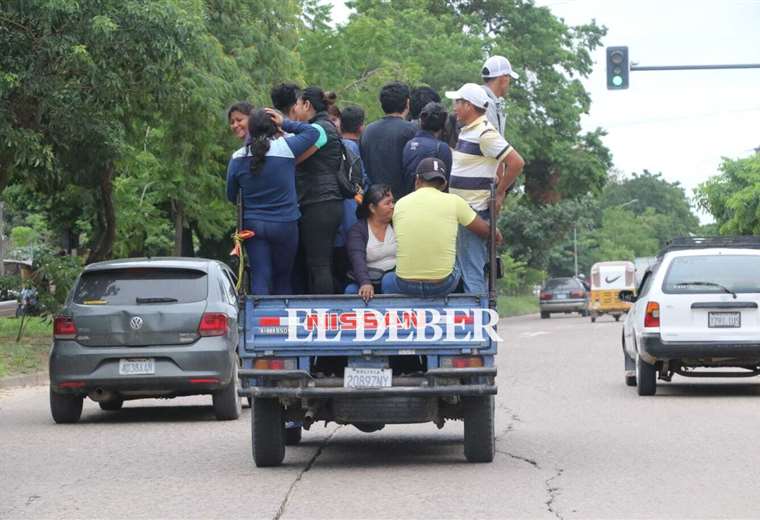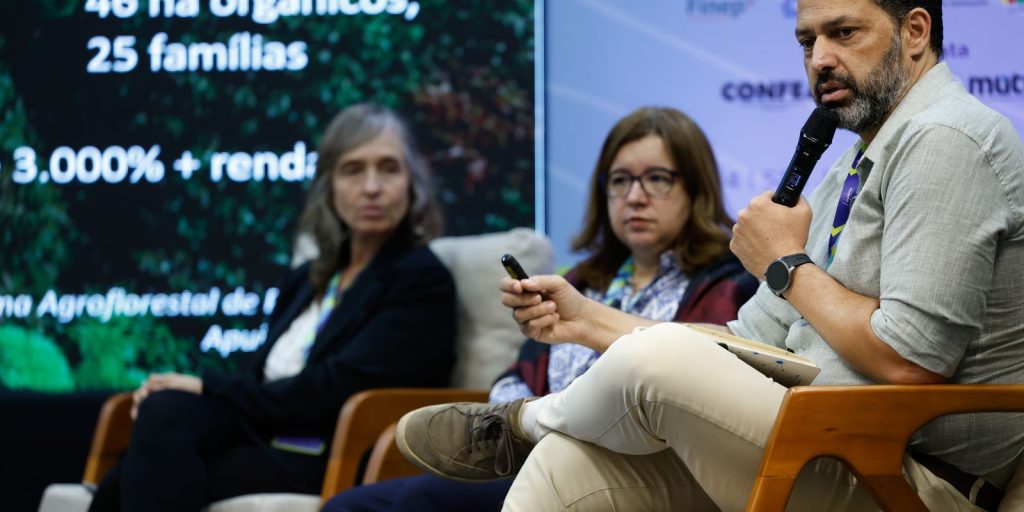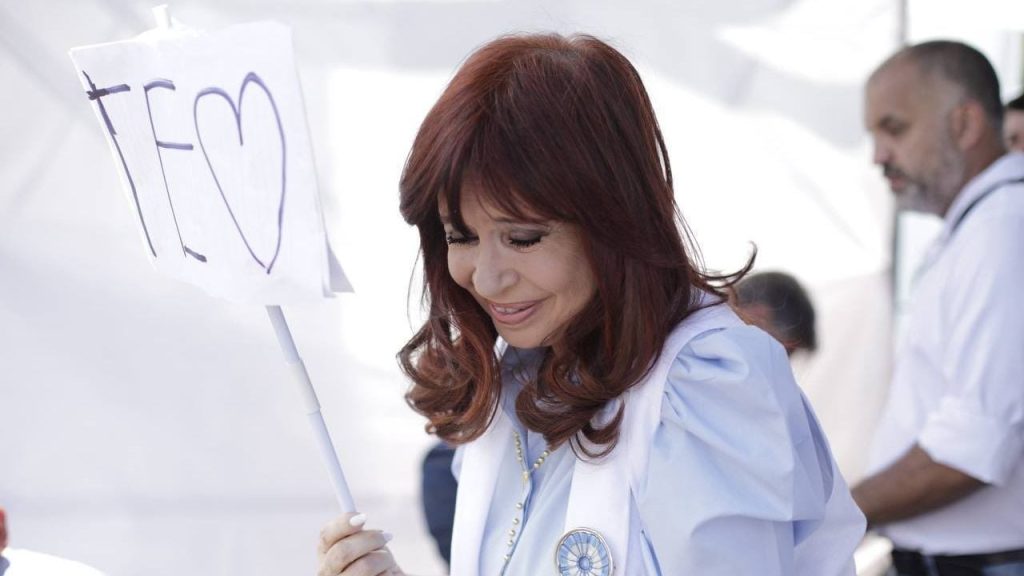December 5, 2024, 4:00 AM
December 5, 2024, 4:00 AM
After an agreement with Mayor Jhonny Fernández, the transporters lifted the indefinite strike and agreed to sit at work tables to analyze the proposals for adjustments to the fare.
“We have insisted on dialogue and it has had an effect to begin to see technical, legal and economic details regarding the proposals that are on the table,” said the mayor in a joint press conference with the transportation leadership.
The micro drivers had a rapprochement with the mayor, but not with the Municipal Council, which maintains its rejection of an increase in the fare until there is a technical study and the service is improved.
The strike was lifted after three days in which the population suffered from a lack of buses and had to travel in trucks, trufis and motorcycles. In addition, drivers who went out to work suffered attacks from transporters who organized to block.
“I want to announce to the citizens that we have agreed with the legally constituted social sectors to ask the motor transport to lift the strike, which is reflected in a commitment that we are assuming,” said Fernández, mentioning that starting this Thursday a social-interinstitutional table will be installed.
At the same time, he questioned the Municipal Council for returning the rate adjustment proposal that he presented two weeks ago.
“I have asked that these tables be installed because we are protected by Law 1216 and article 225, fourth paragraph of the regulations. It is the social actors who now intervene and will participate in these tables to see in detail the technical, economic and legal aspects, in order to move forward and avoid further harm to citizens,” said Fernández.
Said article of the aforementioned regulation establishes that the different operators of the public transport service may present their own studies for consideration and evaluation, both by the competent authority, as well as users or passengers, neighborhood associations and social control.
The mayor reported that the technical table will work by time and matter to have results in 48 hours.
“Prices have varied, not only for materials, but also for the family basket. All these aspects are what we have to analyze at this inter-institutional table. What the Municipal Council did not do, we are going to do,” he stressed.
For his part, the transportation leader, Bismark Daza, indicated that they listened to the request of the mayor who this time gave them a signed commitment.
For his part, Ronald García, from Fedectran, indicated that a consensus was reached for the good of the population.
This agreement was reached within three days of completing the sanctions announced by the mayor, who warned of reversing the licenses for the lines. However, the transport leadership responded that the regulation only establishes economic sanctions and they had no problem canceling.
The Council
For its part, the Municipal Council, in this Wednesday’s session, decided to reject the mayor’s proposal to increase the bus fare, in a range of Bs 2.18 and Bs 2.37.
“We urge the mayor to set up dialogue tables and, in compliance with Law 1216, to carry out a cost study and work on the change to a new comprehensive public transportation system,” said the president of the Council, Silvana Mucarzel.
Likewise, he recommended to the mayor of Santa Cruz to activate the Technical Advisory Committee on Urban Mobility, established by the norm, which mandates the preparation of an agenda to address the problems of urban transportation, in the short, medium and long term.
The reports of the Constitution, Institutional Management and Planning commissions; of Public Works, Environment and Services; and Administration and Finance, agreed that it is necessary to carry out a new cost study to analyze the tariff issue.
“Even though the transportation businessmen kept us hostage, no one sold out here. For this reason, my gratitude to my fellow councilors who defended the pockets of our people tooth and nail, maintaining the rate of Bs 2,” noted Mucarzel.
in the city
The third day of strike It was lived in the midst of blockades and violence by bus drivers that prevented trufis and other vehicles from providing service and traveling along the main routes.
The driver of a taxi went to the Police to report that his vehicle was attacked while trying to pass through one of the roadblocks installed by transporters.
The vehicle suffered severe damage from stones that were thrown by those mobilized, leaving it with broken windows.
“The police officers did this to the taxi driver, they hit him and destroyed his vehicle. “They are abusive,” protested a person who witnessed the incident and reported it on social networks.
The driver claimed that the transporters threw stones at him, forced him to get out of his vehicle and hit him. After the attack, he decided to formalize the complaint.
The population found ways to continue with their activities. Chairs and hats served as steps to get into the improvised vans that were providing service. “Santa Cruz is evolving, except for public transportation,” criticized Daniel Caballero, a neighbor.
The truck drivers indicated that they went out to work to generate income for their family. “With this I can support my home,” commented one of them. They charged rates between Bs 2 and 3, according to the distance.
Some taxi drivers also traveled defined routes, so they placed signs that allowed people to identify the areas. People complained about the lack of authority to put a heavy hand on transportation regulations.















